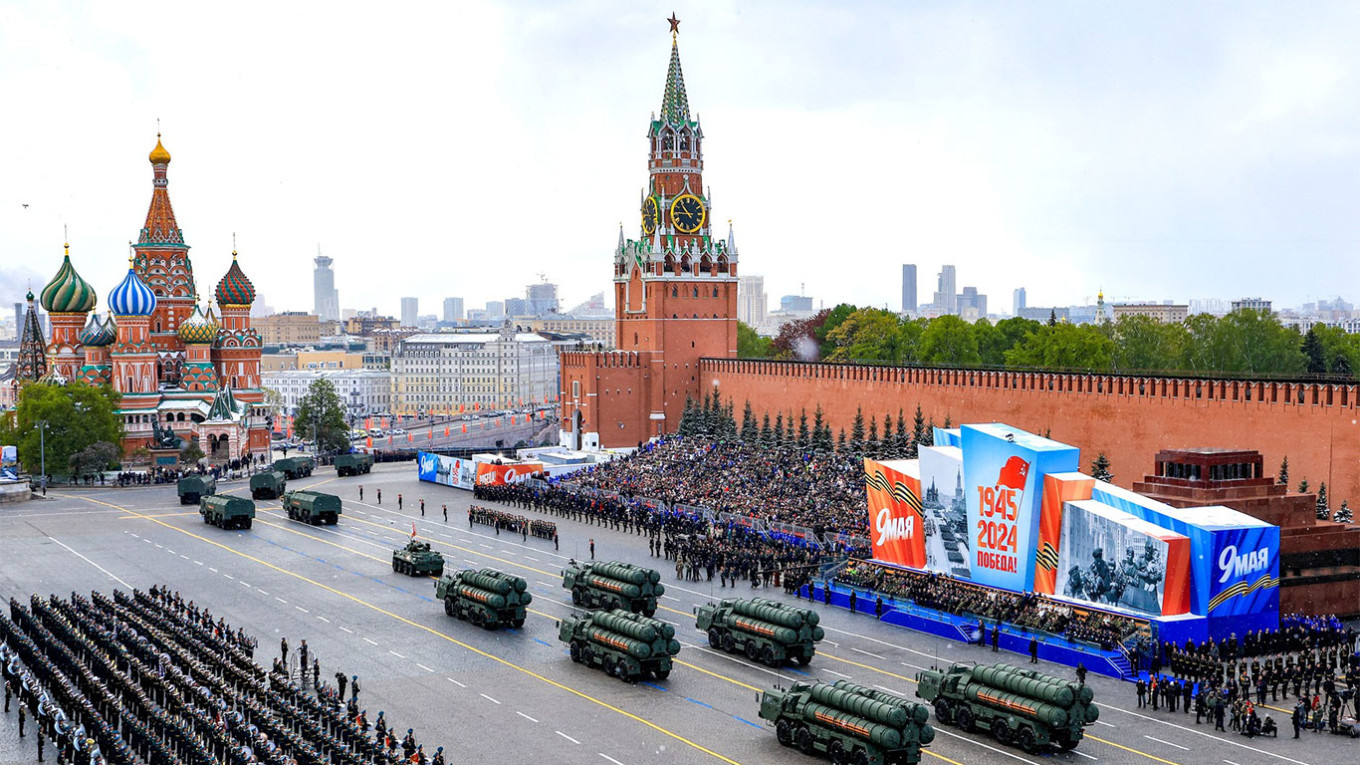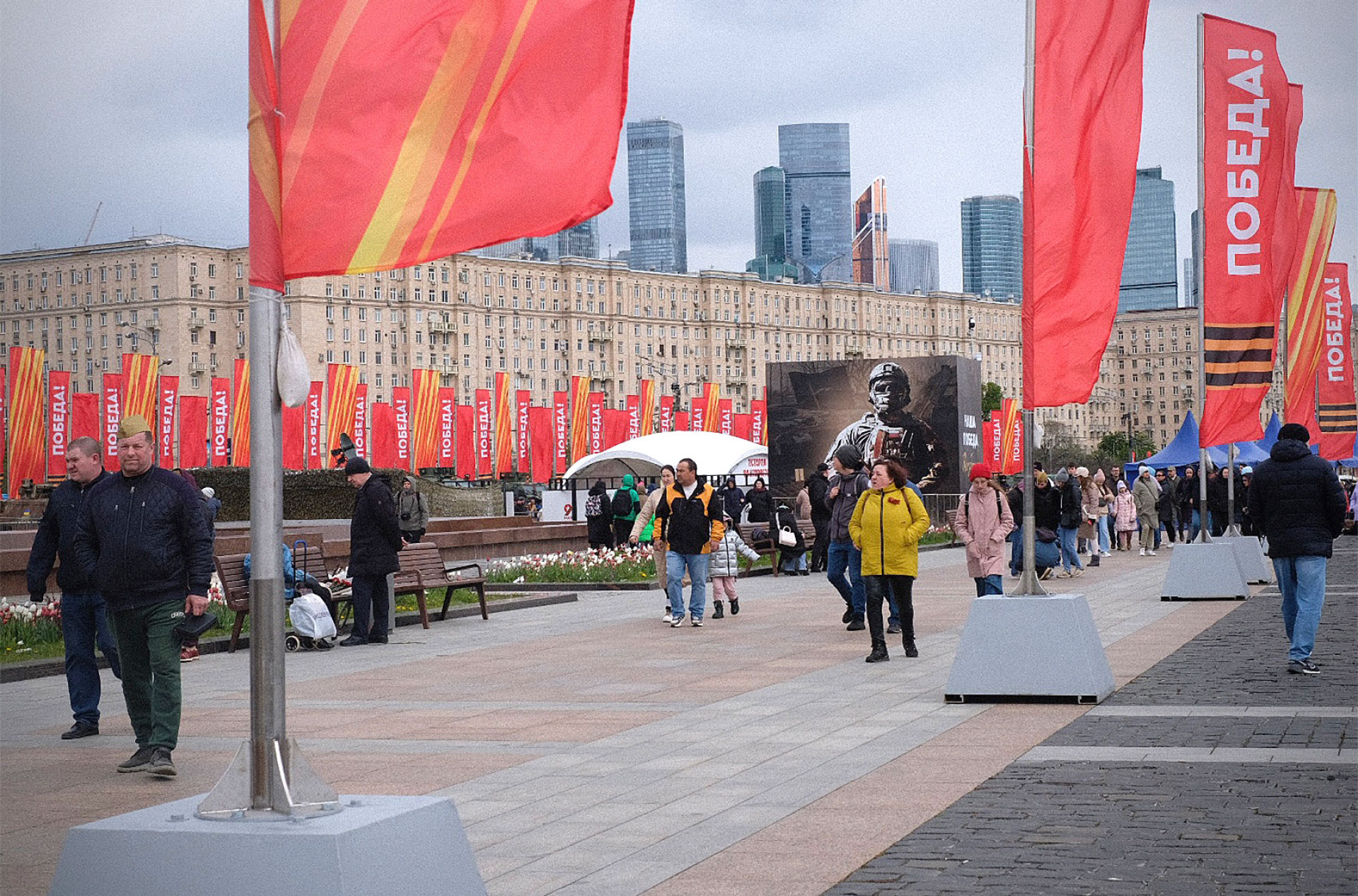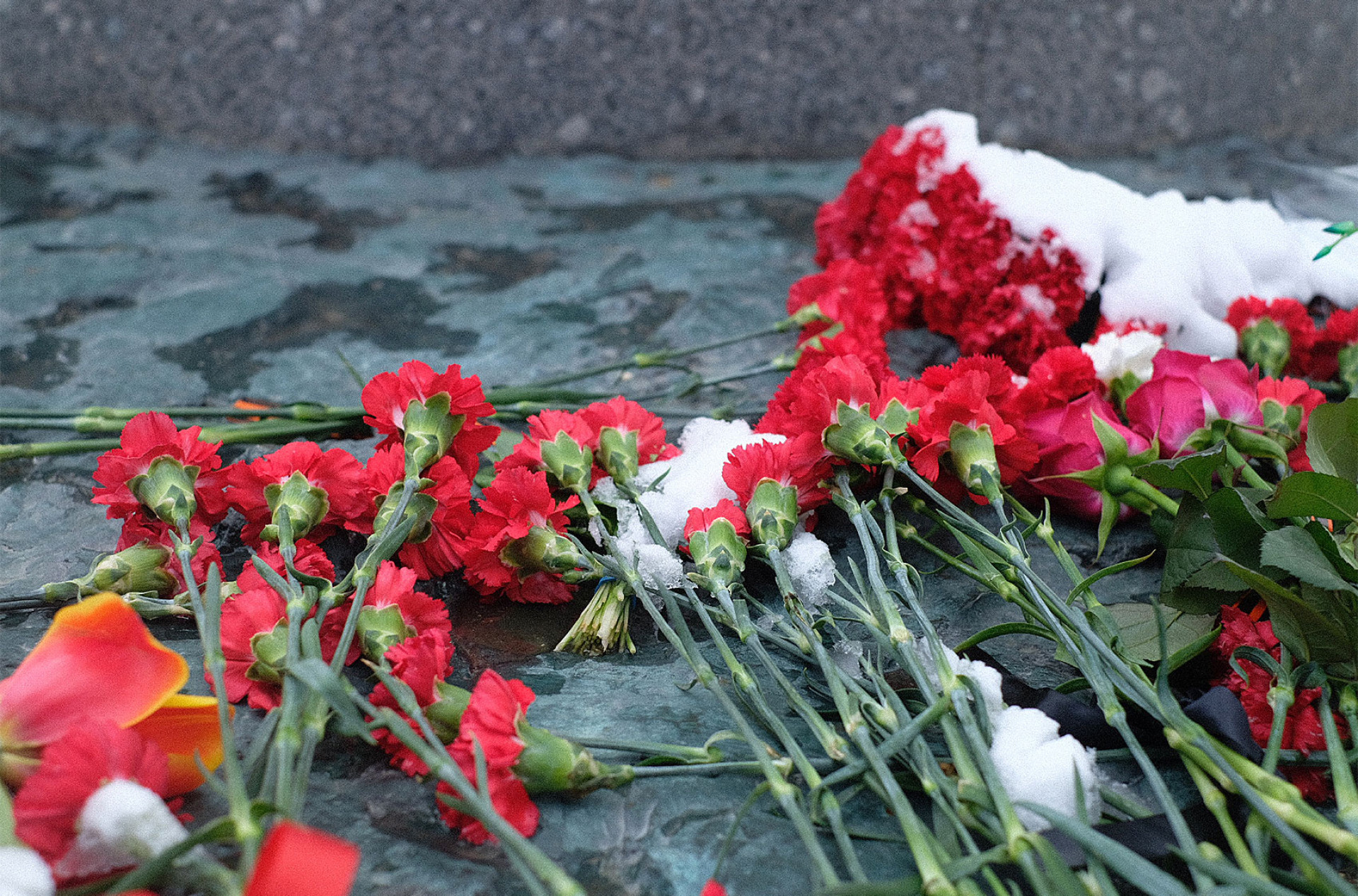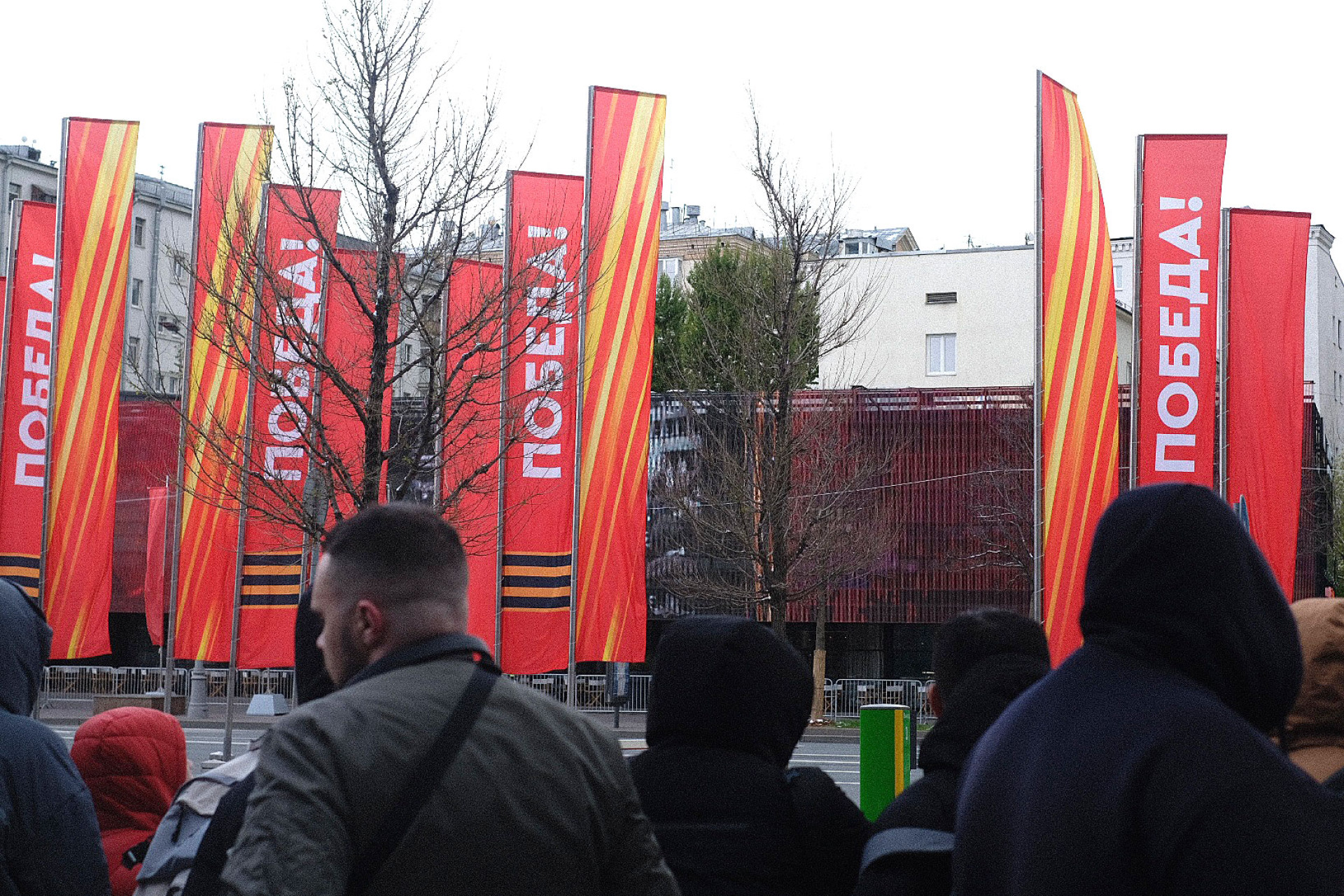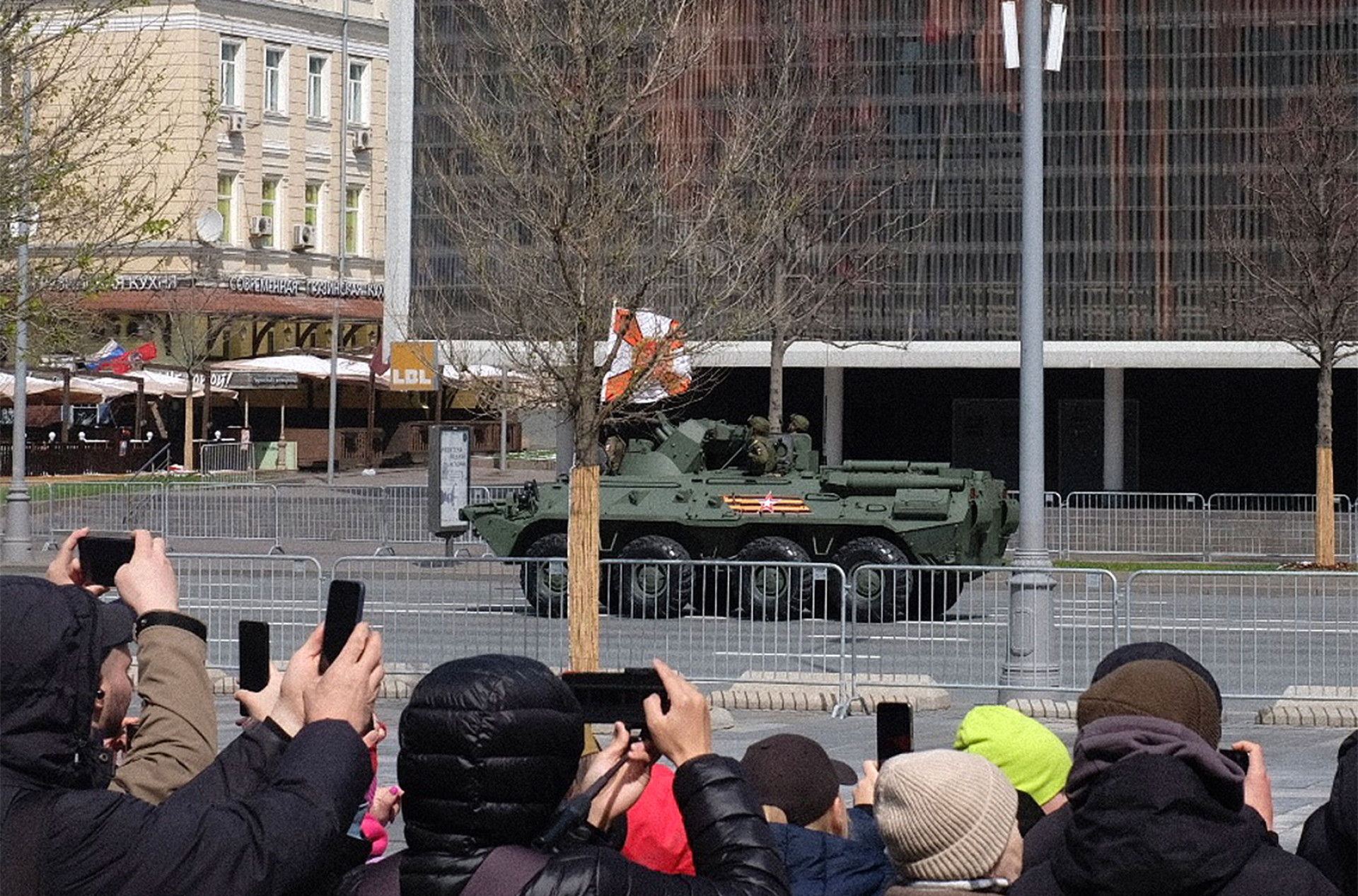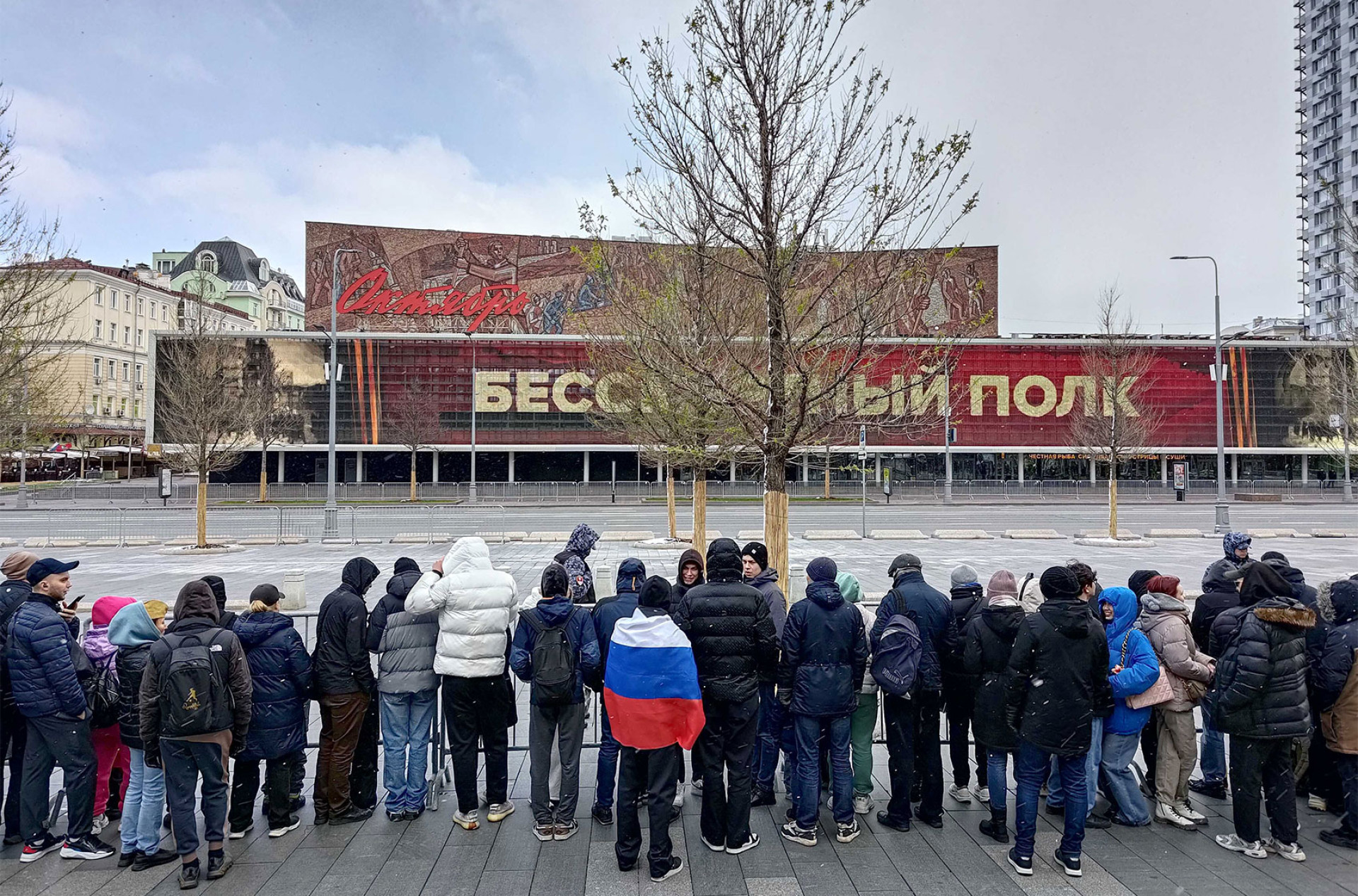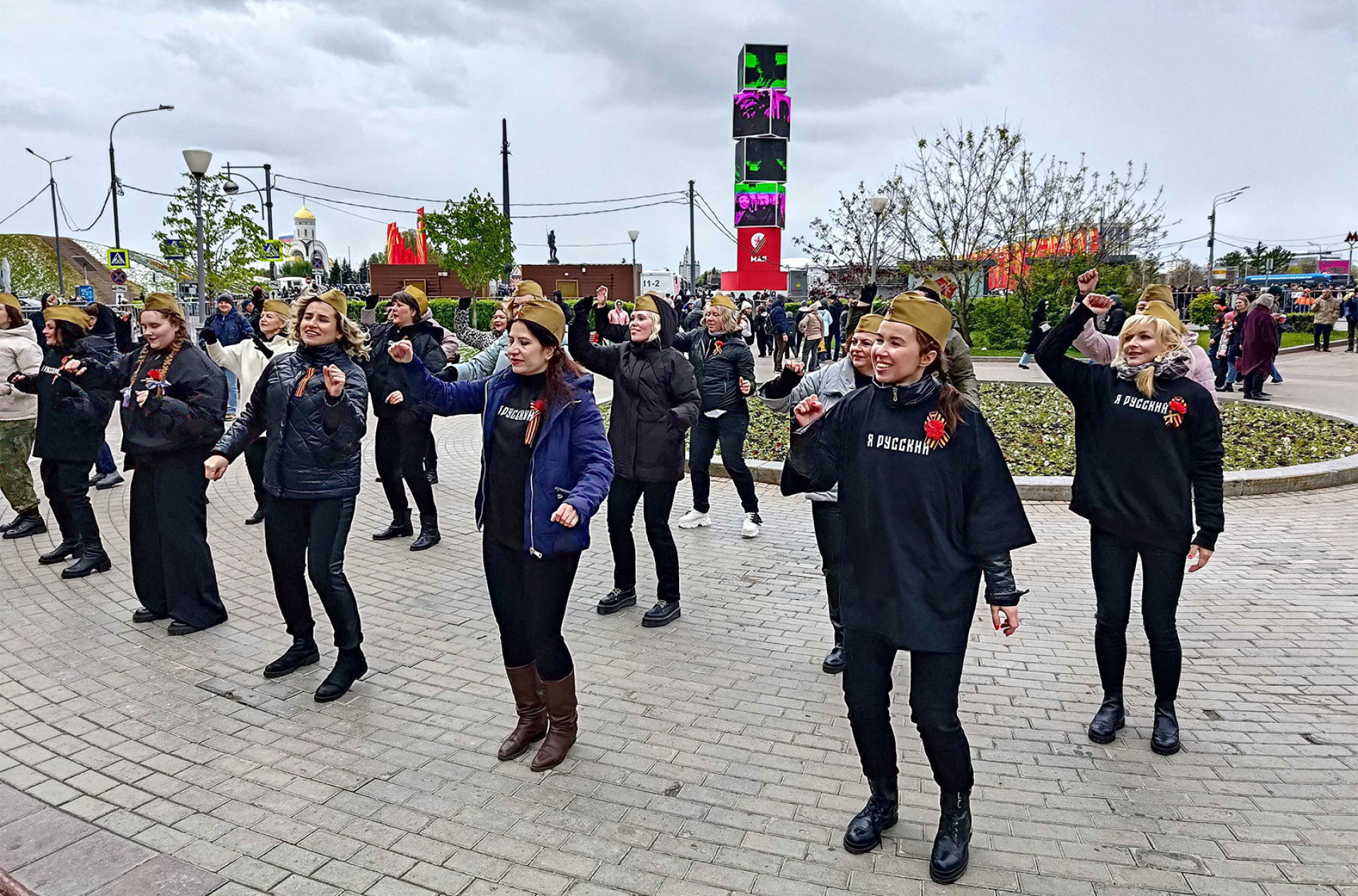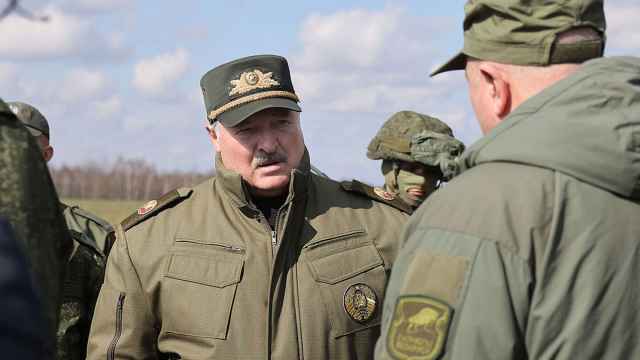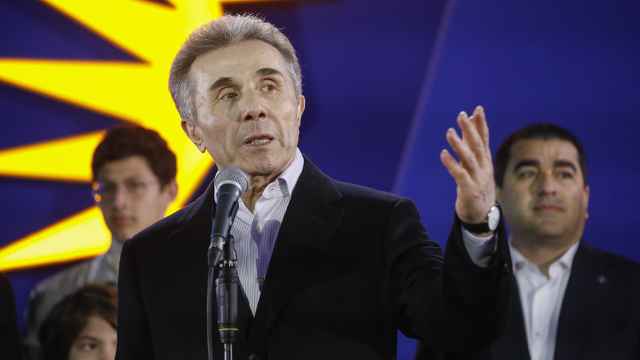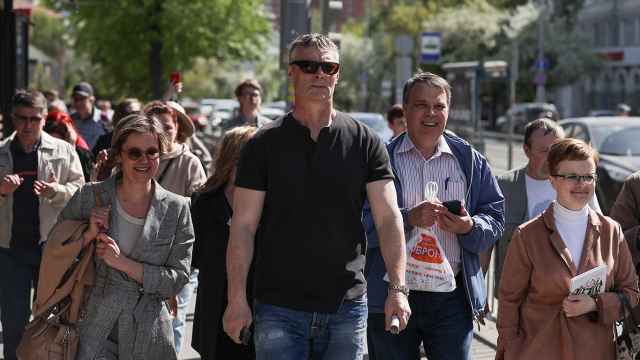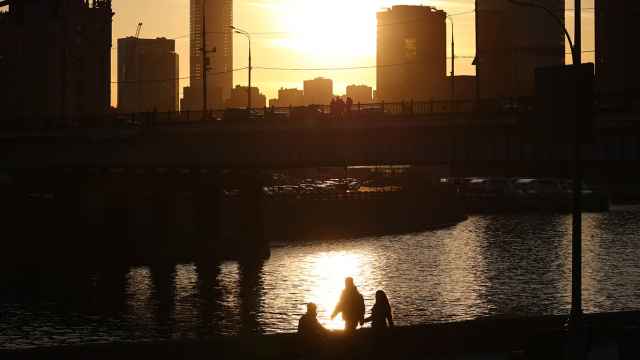MOSCOW — Thousands of Muscovites flocked the streets of the Russian capital on Thursday to commemorate Victory Day, an annual celebration marking the Soviet Union’s triumph over Nazi Germany in World War II.
Many came out to watch the traditional military parade — a showcase of army vehicles and thousands of marching troops dressed in uniform.
Some people within the crowds were themselves dressed in military garb and holding Soviet flags as well as the Russian tricolor. Others carried signs celebrating the defeat of fascism.
"The heart of a Russian patriot demands that he take part in this holiday," said Nikolai, a man in his 50s who came to the military procession with a photo of his veteran grandfather.
“I feel the unity with my grandfather, who fought in Crimea and received military honors. We can feel this connection in modern Russia very well,” he added. “Nowadays, Victory Day is even more important for me.”
Since invading its neighbor over two years ago, Moscow has framed the war in Ukraine as an extension of Russia’s struggle against fascism during World War II. Even before February 2022, the Russian authorities gradually turned the celebration into a bombastic display of patriotism and military might.
In his Victory Day speech at Red Square on Thursday morning, President Vladimir Putin said that “Russia is going through a difficult, critical period,” referring to what the Kremlin calls its “special military operation” in Ukraine.
“We bow our heads to the veterans of the Great Patriotic War who have left us, to the memory of civilians who died from barbaric shelling and terrorist attacks by neo-Nazis,” Putin said in the speech. “Victory Day unites all generations.”
That sentiment — the pursuit of unity — seems to be shared among many Russians.
“We came to celebrate a great holiday for all of us, for our entire country. Today is our day of unity, a day of our grandparents, our relatives, our country,” Vyacheslav, who came to watch the parade in the Russian capital, told The Moscow Times.
"If this holiday didn't exist, we wouldn't exist either,” a man who asked not to give his name said.“We would be speaking German and drinking German beer.”
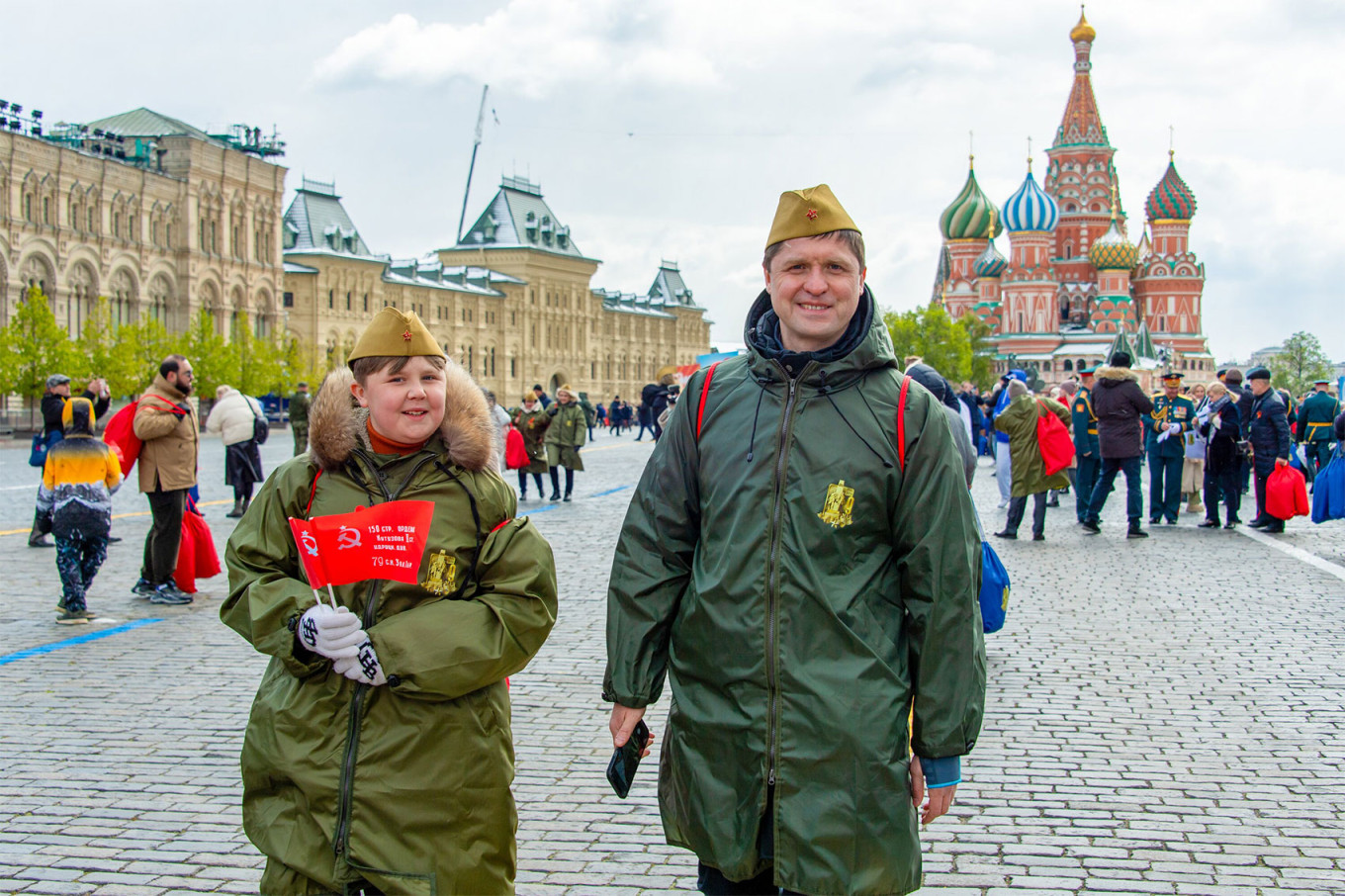
Along Moscow's Novy Arbat Avenue, members of the ultranationalist National Liberation Movement wore shirts that read: “USA and NATO get out!” They distributed leaflets calling for “a decisive fight for the country's independence” from the West.
“The United States formed the Nazi regime in Ukraine. They were preparing an attack on Donbas and Crimea to involve Russia in a big war,” one leaflet read. “Putin was forced to launch a military operation just days ahead of them.”
While some rejoiced in the festivities, for others, the pomp and pageantry of the Victory Day military parade was a bitter reminder of the ongoing war.
At a World War II memorial park in Moscow — where an exhibition of captured Western military equipment opened late last week — a small group of mobilized soldiers’ relatives came to lay flowers.
The action — organized by Put Domoi (Way Home), a group of mostly wives and mothers of mobilized soldiers — was meant to symbolize the resistance of the relatives as they called for the return of their loved ones from the front.
“Did our ancestors truly sacrifice their lives so that we would be drawn into this war [which is not called] a war?” Put Domoi said on social media.“Today is a day of sorrow for us and not a parade with fanfare.”
Although moods were high in Moscow, dozens of regions across the country scaled back or canceled Victory Day celebrations due to safety concerns, including threats of drone and missile attacks.
So, too, were security measures in Moscow boosted, including an increase to the number of law enforcement officers patrolling the streets, as well as the installation of metal detectors in public spaces such as parks.
In addition, Immortal Regiment processions — an annual memorial march where Russians carry photos of their relatives who were killed during World War II — were moved online for safety reasons.
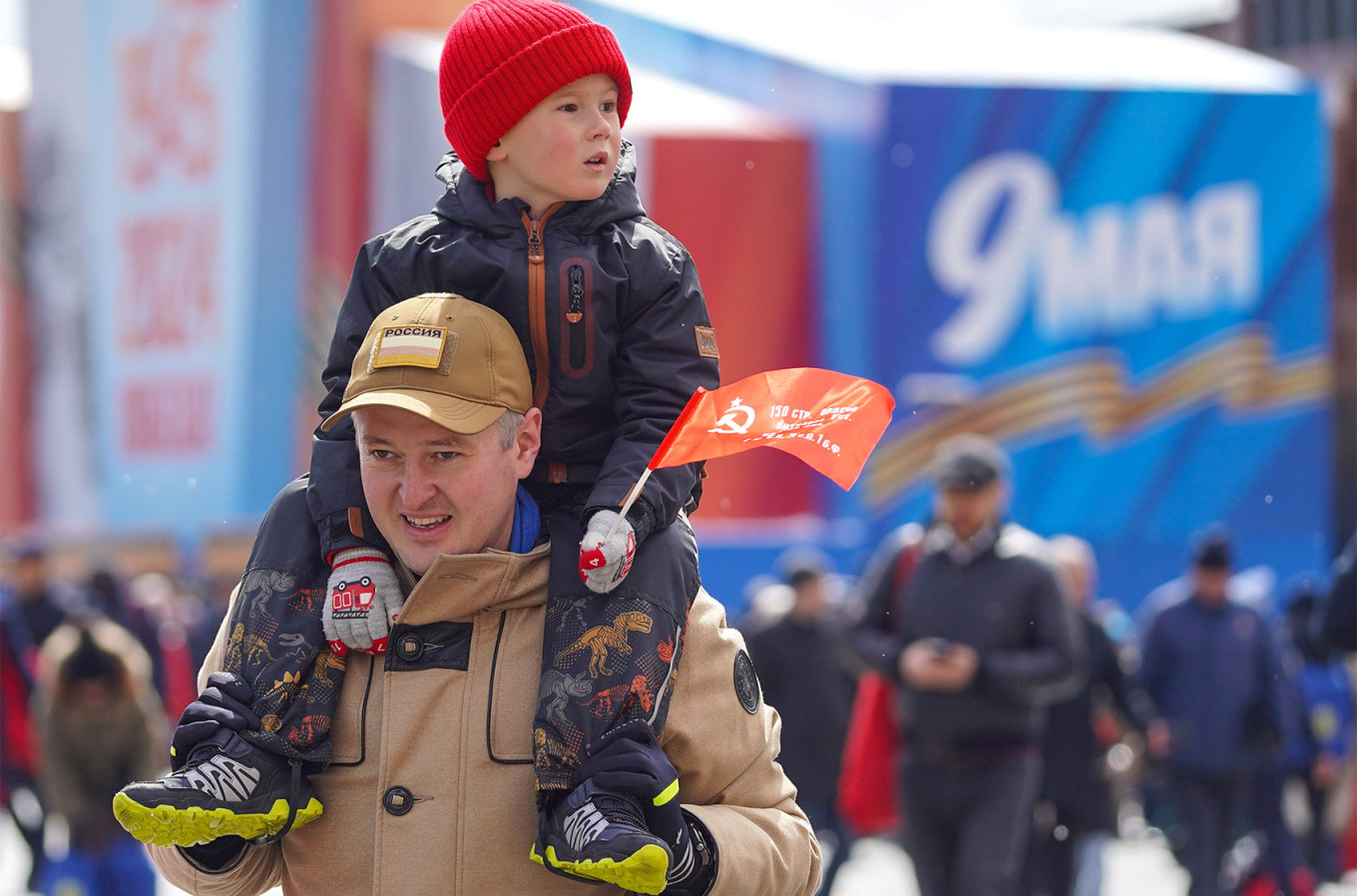
“Victory Day used to be one of my favorite holidays, but now it holds a different meaning,” a woman, who asked not to be named, told The Moscow Times.
“Now it reminds me of today’s event,” the woman said, referring to the war in Ukraine.
While some expressed misgivings about the celebration, for the thousands of people who flocked the streets of Moscow on Thursday, the day would still appear to symbolize the sense of national unity the Kremlin seeks to promote as it presses on with its war against Ukraine.
"The patriotic feelings coming out today nurture us throughout the year and enable us to continue the work of our forefathers, to cherish Russia as the most powerful and benevolent country,” Nikolai said.
"Russia is the final bastion of humanity."
A Message from The Moscow Times:
Dear readers,
We are facing unprecedented challenges. Russia's Prosecutor General's Office has designated The Moscow Times as an "undesirable" organization, criminalizing our work and putting our staff at risk of prosecution. This follows our earlier unjust labeling as a "foreign agent."
These actions are direct attempts to silence independent journalism in Russia. The authorities claim our work "discredits the decisions of the Russian leadership." We see things differently: we strive to provide accurate, unbiased reporting on Russia.
We, the journalists of The Moscow Times, refuse to be silenced. But to continue our work, we need your help.
Your support, no matter how small, makes a world of difference. If you can, please support us monthly starting from just $2. It's quick to set up, and every contribution makes a significant impact.
By supporting The Moscow Times, you're defending open, independent journalism in the face of repression. Thank you for standing with us.
Remind me later.



